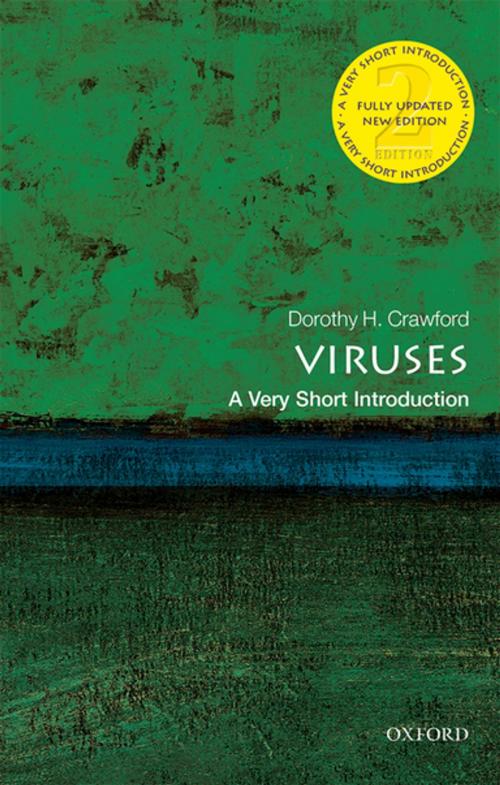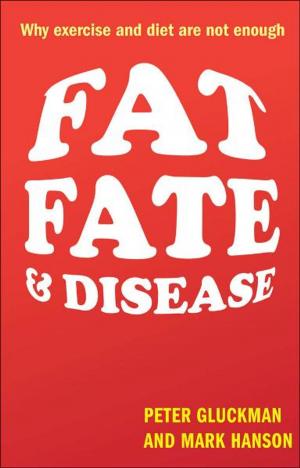Viruses: A Very Short Introduction
Nonfiction, Science & Nature, Science, Biological Sciences, Biology, Health & Well Being, Medical| Author: | Dorothy H. Crawford | ISBN: | 9780192539724 |
| Publisher: | OUP Oxford | Publication: | March 12, 2018 |
| Imprint: | OUP Oxford | Language: | English |
| Author: | Dorothy H. Crawford |
| ISBN: | 9780192539724 |
| Publisher: | OUP Oxford |
| Publication: | March 12, 2018 |
| Imprint: | OUP Oxford |
| Language: | English |
Viruses are big news. From pandemics such as HIV, to swine flu, and SARS, we are constantly being bombarded with information about new lethal infections. In this Very Short Introduction Dorothy Crawford demonstrates how clever these entities really are. From their discovery and the unravelling of their intricate structures, Crawford demonstrates how these tiny parasites are by far the most abundant life forms on the planet. With up to two billion of them in each litre of sea water, viruses play a vital role in controlling the marine environment, and are essential to the ocean's delicate ecosystem. In this fully updated edition, Crawford recounts stories of renowned killer viruses such as the recent Ebola and Zika epidemics, as well as Middle East Respiratory Syndrome, and considers the importance of air travel in facilitating the international spread of viruses in the twenty first century. Discussing the impact of global warming, which is increasing the range of vector-transmitted viruses such as dengue, yellow fever, and West Nile virus, she also considers the effect this will have on native populations in subtropical and temperate climates of the Americas, Australasia, and Europe. By examining our lifestyle in the 21st century, Crawford looks to the future to ask whether we can ever live in harmony with viruses, and considers the ways in which we may need to adapt to prevent emerging viruses with devastating consequences. ABOUT THE SERIES: The Very Short Introductions series from Oxford University Press contains hundreds of titles in almost every subject area. These pocket-sized books are the perfect way to get ahead in a new subject quickly. Our expert authors combine facts, analysis, perspective, new ideas, and enthusiasm to make interesting and challenging topics highly readable.
Viruses are big news. From pandemics such as HIV, to swine flu, and SARS, we are constantly being bombarded with information about new lethal infections. In this Very Short Introduction Dorothy Crawford demonstrates how clever these entities really are. From their discovery and the unravelling of their intricate structures, Crawford demonstrates how these tiny parasites are by far the most abundant life forms on the planet. With up to two billion of them in each litre of sea water, viruses play a vital role in controlling the marine environment, and are essential to the ocean's delicate ecosystem. In this fully updated edition, Crawford recounts stories of renowned killer viruses such as the recent Ebola and Zika epidemics, as well as Middle East Respiratory Syndrome, and considers the importance of air travel in facilitating the international spread of viruses in the twenty first century. Discussing the impact of global warming, which is increasing the range of vector-transmitted viruses such as dengue, yellow fever, and West Nile virus, she also considers the effect this will have on native populations in subtropical and temperate climates of the Americas, Australasia, and Europe. By examining our lifestyle in the 21st century, Crawford looks to the future to ask whether we can ever live in harmony with viruses, and considers the ways in which we may need to adapt to prevent emerging viruses with devastating consequences. ABOUT THE SERIES: The Very Short Introductions series from Oxford University Press contains hundreds of titles in almost every subject area. These pocket-sized books are the perfect way to get ahead in a new subject quickly. Our expert authors combine facts, analysis, perspective, new ideas, and enthusiasm to make interesting and challenging topics highly readable.















